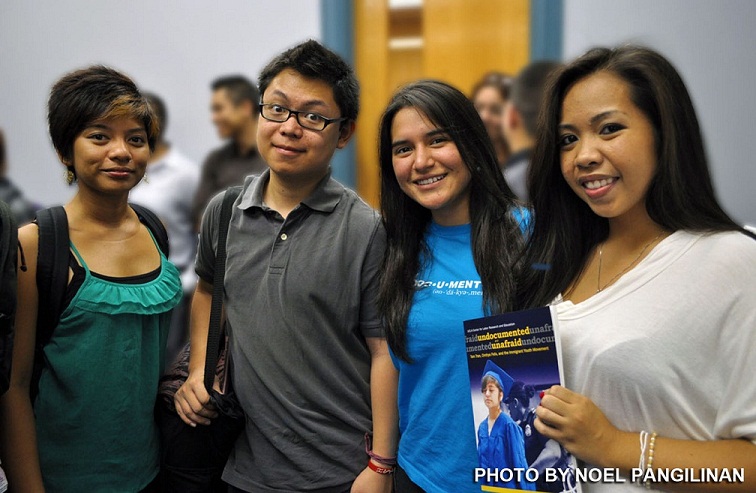Sharon torch song used in absurd soda ad: ‘Balutin mo ako…’
By Joel David
Once in a while popular culture bestows a piece that most of us can take to heart without having to burn our wallets or spend hours to track it down and watch it. The fact that film historian and curator Paolo Cherchi Usai could include “Surprise, Surprise,” a British Airways commercial, in his list of all-time ten-best entries for Sight & Sound magazine’s 2002 survey, demonstrates how canon-formation rules about budget, running time, reception, and authorial talent don’t have to limit our capacity to recognize when a rare exception, originating from nothing but intelligent and intensive cultural assimilation and processing, comes along.
The whole point about “Surprise, Surprise,” as those of us who might have seen it on a streaming source have realized, is that despite its “universal” predicament of a two-timer caught in the act, it could be better appreciated by those who were situated in the theater where the reflexive event took place, if not those who could identify more closely with said audience and their culture. A recent advertising short, titled “Balot” and produced by the still-youthful Gigil Agency for the Philippine branch of Royal Crown Cola, requires even further preparation for those unfamiliar with Philippine culture; those whose encounters span decades will, needless to add, possess greater advantages.
Prior to “Balot,” RC Cola was in fact better known for absurdist Japanese-style ad products, always humorous but occasionally lacking in what Noypi pop-culture experts would term hugot (roughly, emo-content). Gigil itself attained some notoriety for a pandemic-themed beauty ad that had PC viewers in fits of (sanitized) hand-wringing, forcing its sponsor to pull out the presentation. “Balot” takes its own share of risks, but these pay off in varying degrees of satisfaction, primarily because the creative team opted to wholeheartedly embrace the culture that its target audience presumably shares.
It opens with a mother calling her family together as she spreads on the dining table the treats she was able to take home (hence the title, since balot literally means wrapping up) from a neighbor’s birthday party. As she starts taking out increasingly impressive dishes from her bag, a faint breeze blowing on her family’s faces suggests that myth-making is about to take place. When an entire pot of rice is followed by a whole roast piglet, the strains of a familiar movie theme song begin playing, with a somewhat familiar voice crooning the somewhat apt stanza that begins with “Balutin mo ako sa hiwaga ng iyong pagmamahal” (Wrap me up in the wonder of your love).
The song continues as party balloons float up from the mother’s bag, followed by the birthday celebrator, a party clown, and finally the song’s singer, Sharon Cuneta. The cultural insight this revelation interplays with is that the act of taking home excess food from a gathering was made less potentially embarrassing by people euphemistically calling it “sharon” – as in “I’ll sharon some of that later.” When Cuneta herself found out, she good-naturedly hailed and celebrated the appropriation of her name in one of her recent social media posts, in the same teasing spirit that the advert performs. When the extra-large soft drink product is finally taken out and poured, its label descriptor states “Mega Litro,” once more a reference to Cuneta’s stature as the final multimedia star in Philippine pop culture, prior to its splintering into the several niches that typify millennial-era concerns.
In a social-media exchange, Cuneta specialist Jerrick Josue David (not a relation) further explained why the Sharon performance in “Balot” had that touch of the uncanny about it, beyond the narrative’s own marvelous turn. The song, “Bituing Walang Ningning” (“Star without Sparkle,” from the eponymous 1985 film), may have been Cuneta’s most successful movie theme song, but neither singer nor voice in the ad was literally Sharon herself. The impersonation, as much as the film, functioned (triumphantly) as a once-removed star tribute. This points up another Sharonian quality claimed nearly exclusively by the country’s biggest star, Nora Aunor: only these two have on record the presence of drag queens drawn directly from their mass adulators, who sustain professional careers premised on replicating their idols’ respective personas. (Sadly, Cuneta’s most famous impersonator, Ate Shawee, passed away during the pandemic.)
“Balot” will be capable of sustaining a few theoretical discussions for those inclined to swing in that direction. The fusion of fantastic elements with an identifiably lower-class context could be one starting point, alongside the fearless deployment of narrative elements associated with mainstream (a.k.a. “masa”) aesthetics. Those who feel guilty about immersing in the manifold pleasures the ad conveys might want to track the points where their educational training made them believe that this element was unworthy of valuation. Perhaps rewatching “Balot,” now or at a later moment, might help clarify these and a few other questions.
Joel David is a Professor of Cultural Studies at Inha University and was given the Art Nurturing Prize at the 2016 FACINE International Film Festival in San Francisco, California. He has written several books on Philippine cinema and maintains a blog at https://amauteurish.com.













